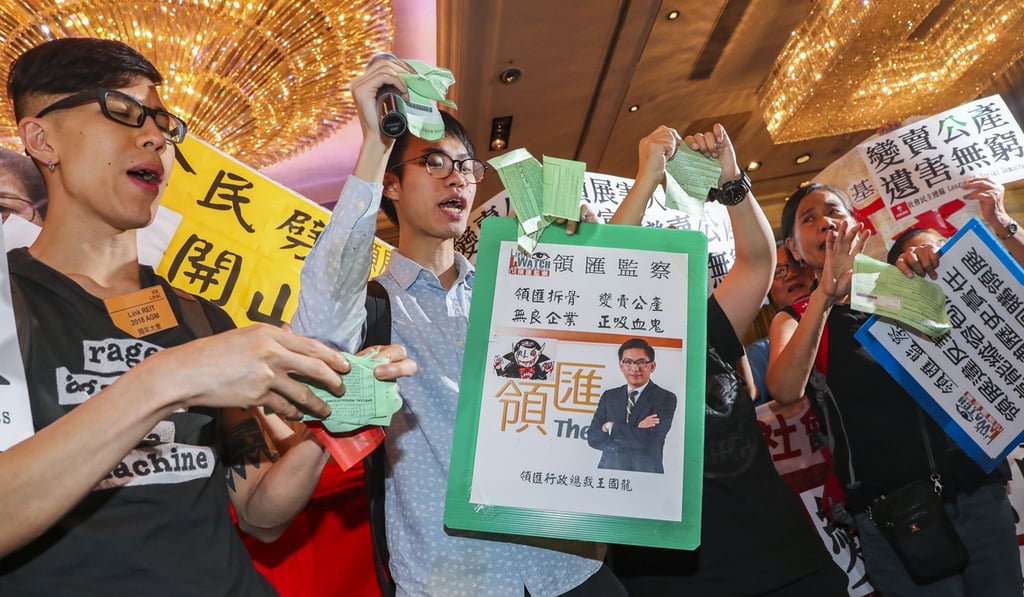Letters | Why should low-income Hong Kong residents have to pay for speculators’ business mistakes?
- Link Reit’s reputation for selling poorly performing properties should have warned off potential investors. When these companies try to recoup their investment, low-income residents pay the price

On April 1, the Housing Panel of the Legislative Council held a four-hour public hearing to examine the social problems caused by Link Reit’s sale of 57 commercial properties in public and subsidised housing estates to various new owners.
The complaints lodged by the residents and shopkeepers affected are too numerous to summarise in this letter. Suffice it to note that one of the new owners, Ace Ample Hong Kong Limited, made a written submission to the panel complaining about the difficulty it had encountered in boosting visitor traffic at Hing Man Estate in Chai Wan because of “smearing” by a local residents’ concern group and unfair finger-pointing by politicians. Ace Ample threatened to take legal action against its critics.
Such companies have themselves to blame for buying public housing properties from Link Reit at market top. Link Reit has a reputation for remodelling only commercial properties in good locations, which it could turn into a regional or even citywide shopping hub, and selling poorly located ones. Its shabby management of ageing commercial properties in public housing estates in poor locations, such as Sun Tin Wai and Hin Keng in Sha Tin, Ming Tak in Tseung Kwan O and Tin Ma Court in Wong Tai Sin, is well known.

To recoup their investments, these investors had to further drive up rentals. The problem of vacancy because of the high rent levels is a problem of their own making.